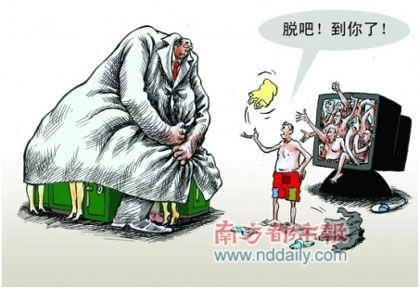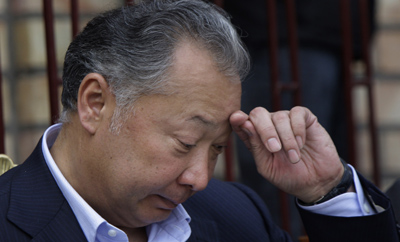
China’s state secrets law leaves journalists exposed
The Standing Committee of China’s National People’s Congress adopted a revised state secrets law on April 29. The changes, which take effect October 1, put greater onus on media and telecommunications companies to defend state secrets and cooperate with authorities investigating alleged violations of the legislation. Chinese commentators point out that while individuals are having…
State-owned Internet provider blocks Kazakh news sites
New York, April 29, 2010—Kazakh authorities must order the state-owned Internet Internet provider Kazakhtelecom to immediately restore access to the independent news portal Respublika and the Web site of its sister publication Respublika-Delovoye Obozreniye, the Committee to Protect Journalists said today.

Is Brazil the censorship capital of the Internet? Not yet
Last week, Google published its first set of global government request statistics, showing how many demands it receives to remove content from its servers or hand over private information on its users. Transparency by Internet companies about how much information they are compelled to remove or release helps us understand how online journalism worldwide may…

Microsoft, piracy, and independent media in Kyrgyzstan
When the independent television outlet Stan TV was raided by Kyrgyz financial police on April 1, authorities claimed they were investigating the use of unlicensed software. The timing of the raid implied a different motivation. As CPJ reported at the time, the day before, the Kyrgyz courts had shut down the pro-opposition newspaper Forum. In…
Rwanda shuts critical papers in run-up to presidential vote
New York, April 13, 2010—The Committee to Protect Journalists condemns today’s decision by Rwanda’s Media High Council to suspend two independent weeklies just months prior to presidential elections. At a press conference, attended only by state broadcasters and the pro-government radio station Contact FM, the Media High Council announced an immediate six month suspension of…
In censoring Web, Thailand could worsen crisis
As part of its declaration of emergency, the Thai government last week radically broadened existing Internet censorship powers to prohibit a wide range of speech, including independent commentary and newsgathering. In doing so, it has exacerbated an already fragile political situation and may have permanently weakened Thailand’s constitutional protections for press freedom.

Reuters cameraman killed in Thai political violence
New York, April 12, 2010—The Committee to Protect Journalists is saddened and outraged by the fatal shooting of Reuters cameraman Hiro Muramoto during armed exchanges between government soldiers and antigovernment protestors on Saturday. Muramoto, left, a Japanese national, was shot in the chest while filming an early-afternoon confrontation and was pronounced dead at a Bangkok…

Emergency censorship deepens unrest in Thailand
New York, April 9, 2010—The Thai government should restore access to news outlets censored after a state of emergency was declared Wednesday in response to antigovernment protests, the Committee to Protect Journalists said today. Journalists reporting on the unrest are increasingly vulnerable to physical assault as clashes between protesters and authorities escalate.

Somali insurgents ban BBC
New York, April 9, 2010—Al-Shabaab insurgents in Somalia have banned all BBC broadcasts from the areas they control and confiscated the corporation’s FM transmitters and satellite dishes. Local journalists told CPJ that Al-Shabaab issued a statement today announcing the immediate ban, claiming the BBC carried the “agenda of the crusaders” and “opposed an Islamic administration.”
CPJ asks Obama to raise poor press record with Kazakhstan
Dear President Obama: In advance of your April 12 meeting in Washington with Kazakh President Nursultan Nazarbayev, we’d like to draw your attention to the deteriorating press freedom conditions in Kazakhstan. Unchecked violence and the arrest of independent reporters, politicized prosecution and harassment of critical outlets, and draconian media and Internet regulation laws tarnish the record of the current chair of the Organization for Security and Co-operation in Europe (OSCE).